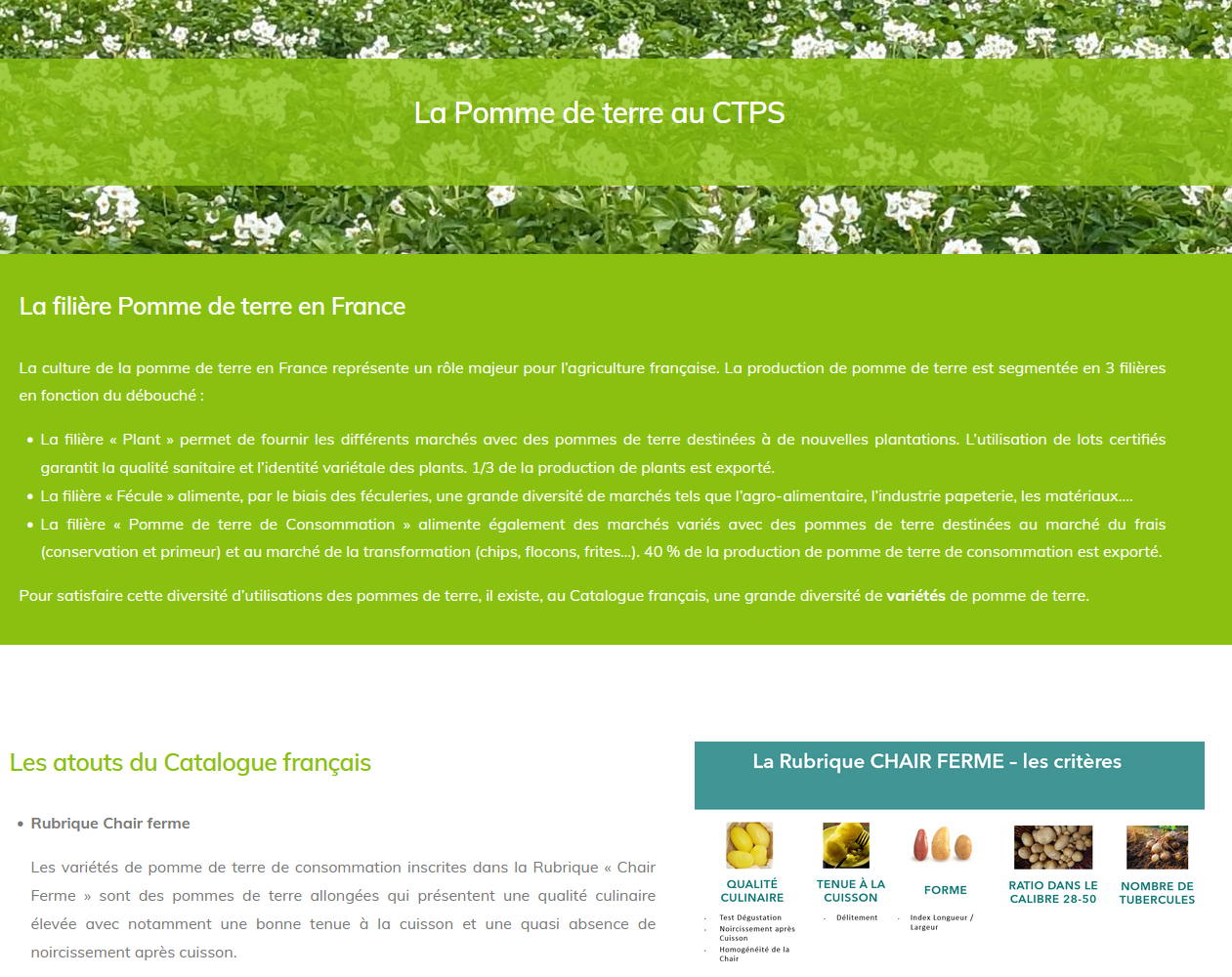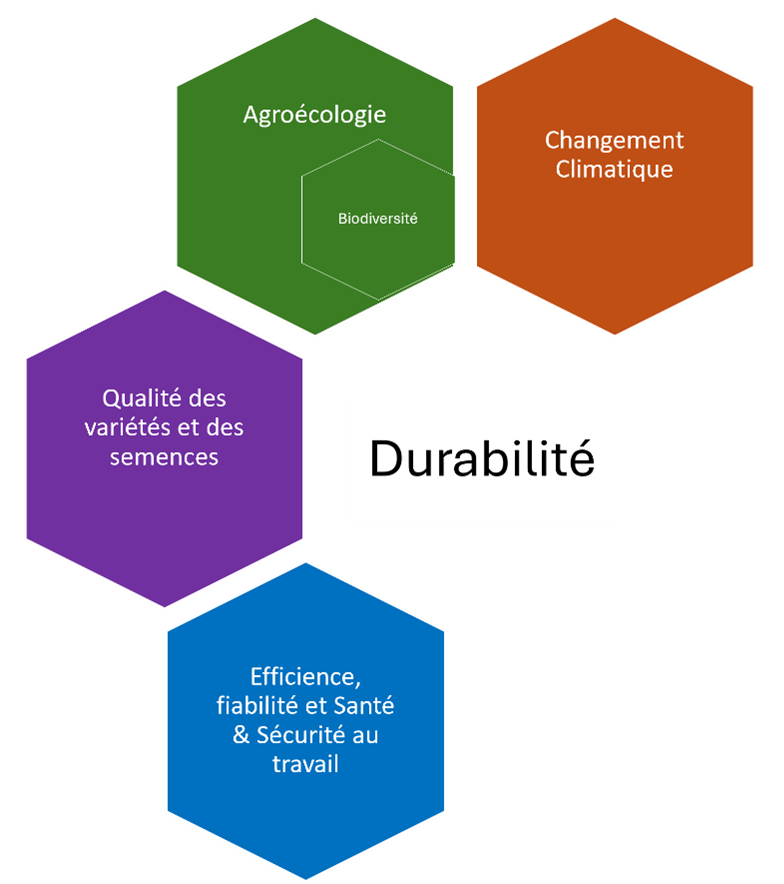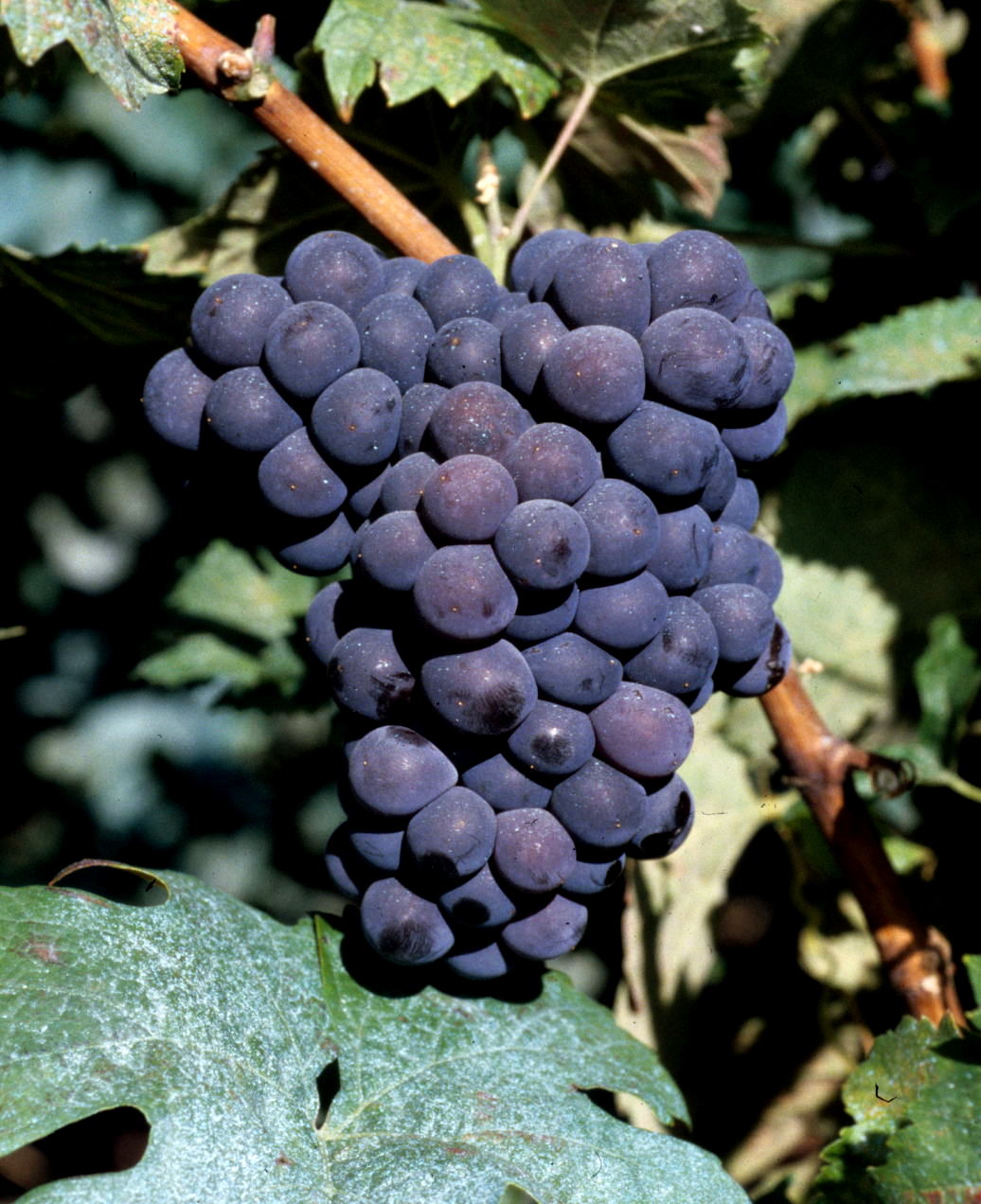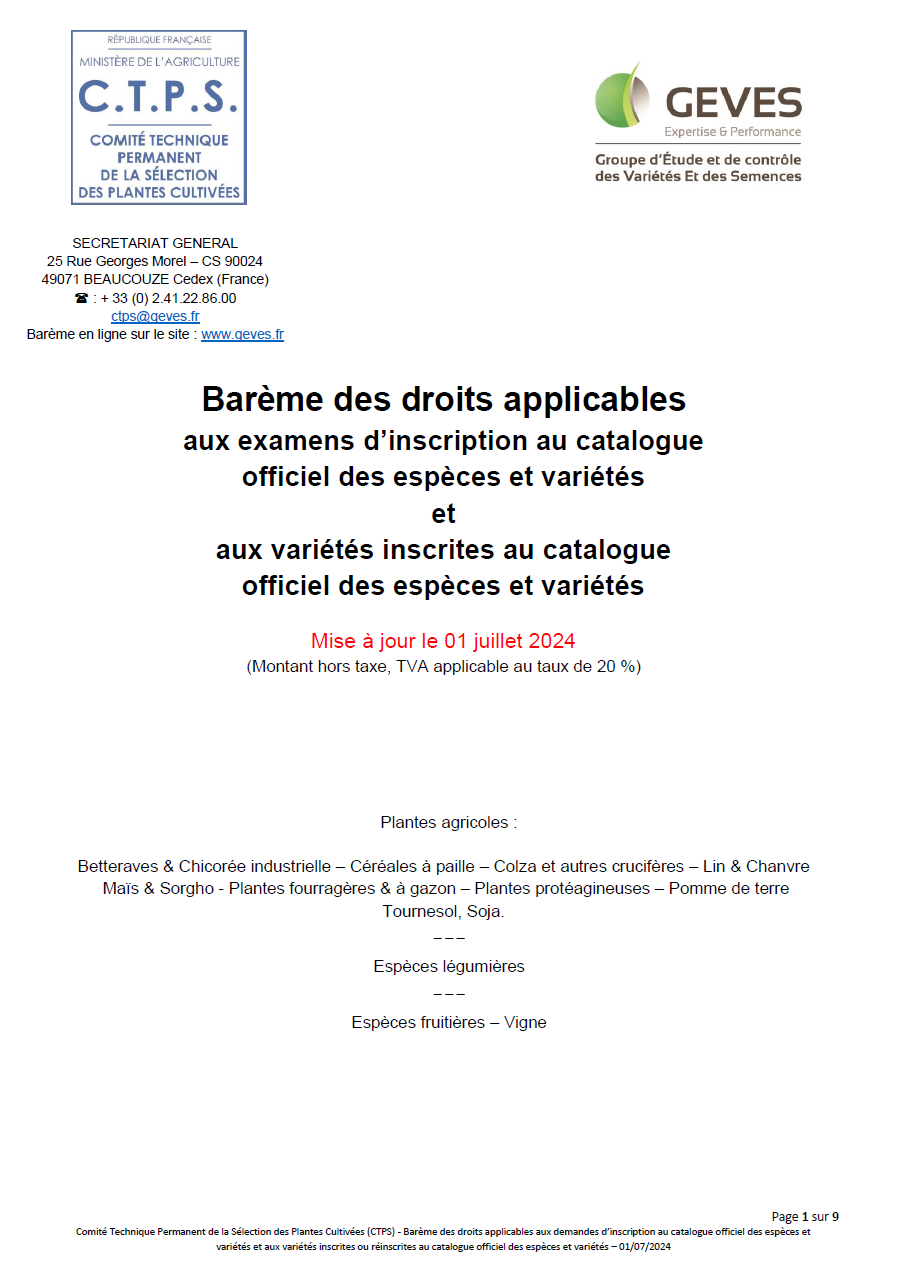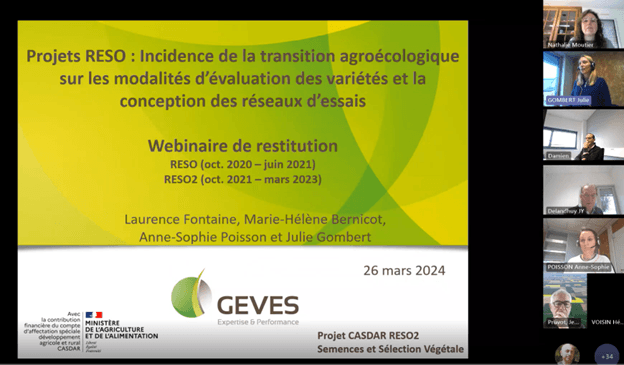
RESO2: a research project to encourage the registration of varieties adapted to agroecological systems
French agriculture has begun its agro-ecological transition. Agro-ecological production systems, characterised by increased use of ecological processes to replace the use of synthetic inputs, are developing and require an adaptation of the range of varieties on offer. Identifying and characterising varieties adapted to agro-ecological systems is necessary to encourage their registration in the Catalogue and facilitate users’ choices. The objectives of the RESO2 project were to develop the methods used for evaluating varieties and to adapt trial networks, with a particular focus on registration in the official Catalogue. The aim of this project is to translate the proposals arising from the RESO project (carried out in 2020-2021) into operational actions and to support the CTPS sections concerned. This project will support the implementation of the SPAD2 plan (“Seeds and Plants for Sustainable Agriculture”, 2020-2024).
The RESO2 project is structured around three main actions.
The first action aimed to improve the way in which traits of interest for agro-ecological systems are taken into account in varietal evaluating. The three traits of interest selected came out of the RESO workshops, namely competitiveness between plants, vigour and suitability for association. The work carried out in RESO2 made it possible
- to summarise the knowledge acquired on these three interrelated traits and
- to draw up an inventory of evaluation methods and to help choose those that could be used in the evaluations. In addition, methodological tests have been set up on several species to evaluate initial vigour and covering power (soya, potato, triticale). The ability to combine crops has proved more complex to assess, requiring more knowledge, and we have high hopes for the research projects currently underway (Innov’Asso, Asso’Ideo).
The second action concerned trial conditions and the construction of networks adapted to agro-ecology. This action revealed the existence of a certain amount of diversity in variety evaluation networks: soil and climate conditions, cultivation methods, but also the increasingly frequent occurrence of biotic and abiotic stresses. Several trial networks have gradually incorporated organic agriculture (OA) or agro-ecology trials, which may raise certain questions or encounter certain difficulties. To address these issues, a practical guide has been drawn up entitled: “Synthèse des recommandations pour évaluer des variétés destinées à des systèmes de production AE : guide pratique” (Fontaine et al., 2023). The construction of trial networks is a complex stage that depends on the species, the traits of interest to be evaluated (and the conditions required for their evaluation). Dedicated trials can be set up to evaluate a particular trait. The development of a protocol to evaluate resistance to sclerotinia in oilseed rape was initiated as part of Reso2 (and continued as part of the FAM Precotion project). In conclusion, it is important to find the right balance between the different types of trials. The diversity of production practices and environments needs to be explored further but better characterised (envirotyping) to enhance its value (grouping of specific trials, new characteristics).
The third action dealt with the adaptation of decision rules for the registration of varieties adapted to agroecological systems. An analysis of changes in decision rules (quotations) over the last 20 years was carried out for 5 species: soft winter wheat, sunflower, protein peas, oilseed rape and beet. The changes made over the last 20 or 30 years have been gradual, depending on the context in terms of cultivation, use, politics and society, and the genetic innovations available for each species. Not all changes are in line with the decision rules written in the technical regulations (changes in networks, experimental conditions, tests & characteristics given for information purposes, etc.). All the evaluating (testing and decision-making) rules are constantly evolving. The impact of these rules has been studied for peas over 10 years and soft wheat over 5 years, illustrating how the changes result in the registration of varieties with the desired characteristics. In conclusion, there are several levers that can be used to change the decision rules for the future and encourage the registration of varieties adapted to agro-ecological systems.
The results of the Reso2 project will make it possible to
- ensure that traits of interest for agro-ecology are better considered in variety evaluation,
- strengthen the diversity of registration networks and make the most of this diversity by improving the characterisation of trials (envirotyping) and
- encourage changes in registration rules.
CASDAR AAP SSV 2021 project “Incidence de la transition agroécologique sur les modalités d’évaluation des variétés et la conception des réseaux d’essais »
Project leader: GEVES, Julie Gombert
Partners: Terres Inovia and INRAE (UMR Agronomy and IGEPP).
Partners associated with the steering committee: Arvalis-Institut du Végétal, INRAE (UMR AGIR et Agroécologie, UE de Bretenières) and Institut Technique de la Betterave (ITB).

